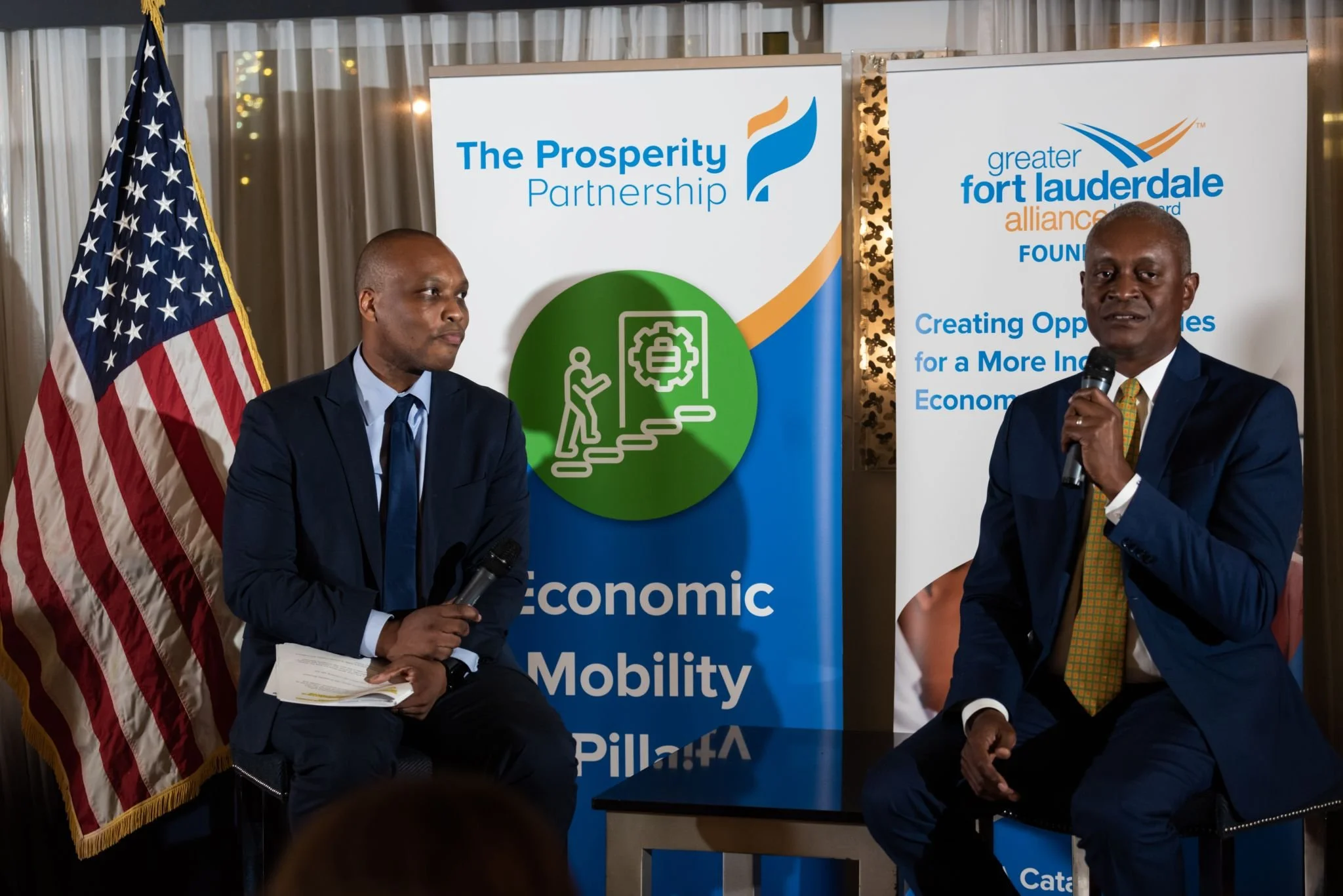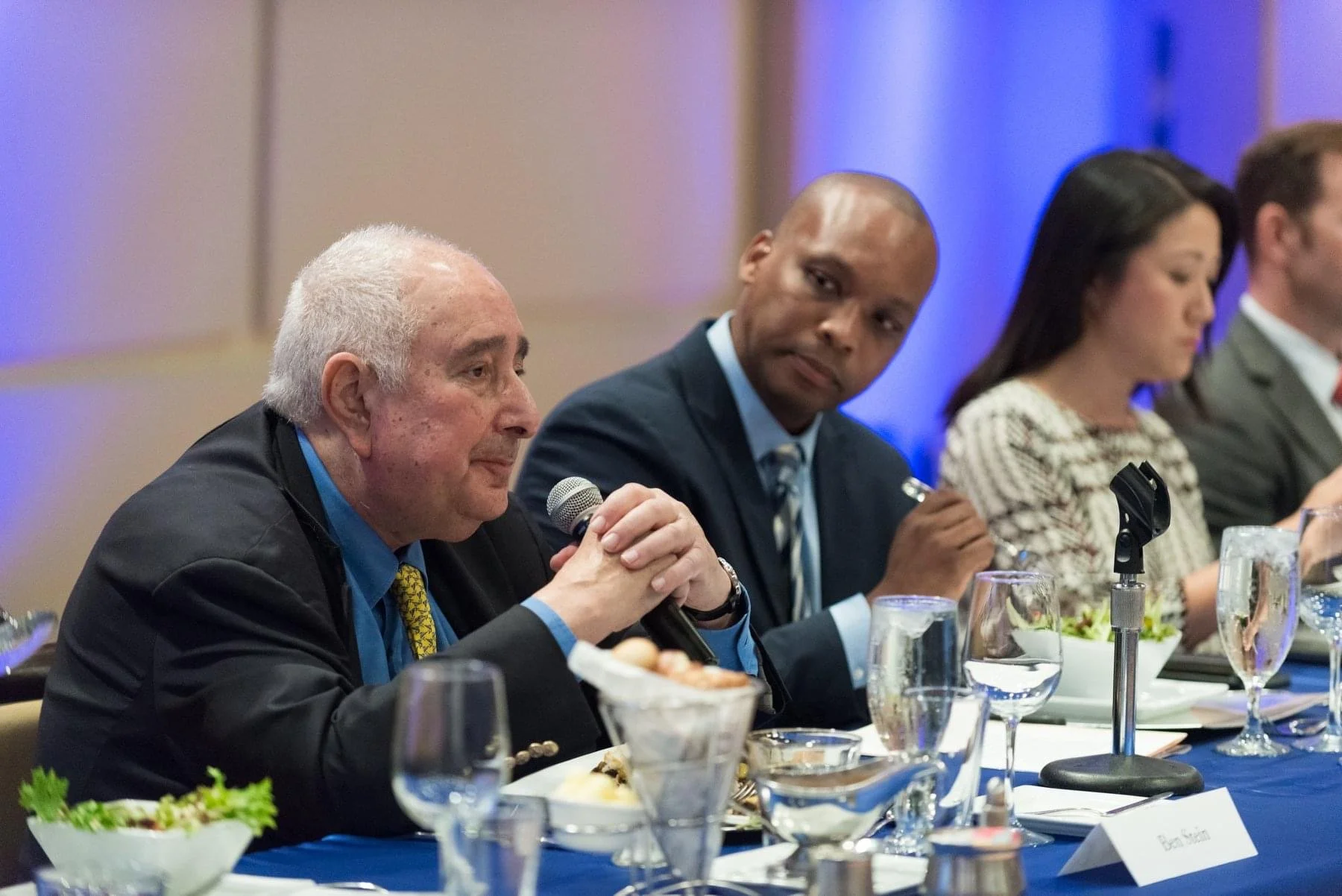
EXPERIENCE
Greg is a Senior Fellow at the Mossavar-Rahmani Center at the Harvard Kennedy School, the Deputy Chair of the Federal Reserve Bank of Atlanta, a former President of one of the largest colleges in America, a lawyer and a professor. He has chaired over 15 boards or committees. To the surprise of many, he also graduated high school with a 2.7 grade point average, grew up in a crime-ridden neighborhood in Queens, NY, at the height of the crack-epidemic, and was the first in his family to graduate from college. He has dedicated his life to lifting the lives of others. He leverages lived personal and professional experiences to designs and implement innovative programs and initiatives at the nexus of higher education, workforce training, economic policy, and social equity that elevate municipalities, businesses, and individuals alike.
Higher Education Administration
For example, as President of Broward College, Greg helped address local crime by creating a transformational justice program that provided both victims and first-time offenders of nonviolent crimes the chance to train for a new career at no cost with the full cooperation of the public defender's office, the state attorney’s office, and the courts.
He also secured a $30 million dollar gift from an out-of-state philanthropist– the largest in the college’s history – which was leveraged to ensure that Broward UP continued in perpetuity. Broward UP brings no-cost adult education classes and workforce training to those living in the poorest neighborhoods in Broward County. This expanded service model was designed to help overcome barriers many residents from low-income communities face when it comes to attending college, and provide adult learners with the skills and credentials necessary to land higher-paying jobs and raise the standard of living for themselves. By bringing college faculty and courses directly to the community, Broward UP also introduces the idea of college itself, that receiving a post-secondary education offers hope and possibilities that neighborhood residents of all ages once thought closed to them.
“Adult learners who successfully complete a 12- to 18-month certificate program through Broward UP realize, on average, a 44% increase in earnings over their current income.”
Higher education institutions can and should be positioned and function as economic drivers in the regions they serve. Colleges and universities not only create hundreds, often thousands, of full-time, part-time and contract positions in a wide range of fields and professions to support students, faculty research and campus operations, they also attract tourists, alumni, and local residents to campus cultural, artistic and sporting events which generate additional revenue for the institution and nearby restaurants, hotels and shops.
Thus, the prosperity of an entire county, state, or nation increases by ensuring individuals can access post-secondary education, training and retraining opportunities regardless of their income to gain the skills, knowledge and confidence necessary for careers that offer opportunities for uppward mobility and improved quality of life for themselves, their families and their communities.
South Florida PBS interview with Gregory Haile on Broward UP
In the Margin: Diverse Issues in Higher
Education Podcast
Message to the Community: Managing in the Age of COVID-19
Workforce Training
Gregory Haile with high school students dual enrolled at Broward College’s Emil Buehler Aviation Institute (Broward College/Downtown Photo)
Post-secondary education doesn’t just refer to the awarding of a college degree. It can also consist of vocational training where adult learners of all ages gain the valuable skills and credentials they need to succeed in a specific career or industry. As employers are increasingly moving towards skills-based hiring, the reality is that not all high-wage-paying jobs require a two-year, four-year, or advanced degree. Moreover, the advent of AI and machine learning will displace as many as 300 million American workers by 2040, even as it is expected to create new positions requiring skills and technical competencies that we cannot yet imagine. At the same time, the AI revolution has increased demands from employers for employees with non-technical skills such as critical thinking and analysis, ethical decision-making, and emotional intelligence. Importantly, generative AI is likely to have the unfortunate impact of widening the digital divide between those who have access to the opportunities that generative AI will provide, and those who do not.
Even more importantly, by bringing together higher education administrators, business leaders, and community organizations to discuss unmet labor challenges, colleges and universities can provide training and upskilling for local workers at all stages of their careers, developing workforce training programs specifically for local businesses and social services organizations.
In addition, Business leaders and organizations that provide direct input on curriculum development and support in terms of agreeing to hire workers from select degree, certificate, or other workforce training programs substantially increase the likelihood that their employees will possess the exact skill set necessary to fulfill the duties and responsibilities for which they are hired. This will increase productivity and improve retention as employees who feel confident in their roles and know exactly what their job duties entail before they accept a position experience higher job satisfaction.
In 2023, in response to a chronic shortage of truck drivers, Greg Haile secured $2.6 million in funding from the Florida Job Growth Grant to establish a new four-week workforce training program in commercial truck driving and licensing.
Greg has vast experience forging strong relationships between higher education institutions and local businesses and business associations to develop workforce training programs that meet the desires and demands of both employees and employers. In early 2023, U.S. Commerce Secretary Gina Raimondo appointed Greg to the U.S.-EU Trade and Technology Council’s Talent for Growth Task Force, which provides recommendations on how to expand innovative workforce training initiatives and programs as the AI Revolution takes hold.
Of the six Americans appointed to the Task Force, Greg was the only college president chosen, a sign of his success in overseeing the development and execution of some of the nation’s most successful workforce training programs while at Broward College.
Gregory Haile Cooks with James Beard Award-WINNING Chef Michelle Bernstein
Hotel Business Roundtable: how to benefit from the untapped labor market
Economic Policy
As Deputy Chair of the Atlanta Fed, Greg Haile helps people to understand the role of the Fed in shaping monetary policy and how that impacts the American economy. Here, at an event for the Greater Fort Lauderdale Alliance, for which he is Immediate Past Board Chair, he speaks with Federal Reserve Bank of Atlanta President Raphael Bostic on economic mobility.
Greg is a Senior Fellow at the Mossavar-Rahmani Center for Business and Government at the Harvard Kennedy School. His work there focuses on the intersection of three key elements of American national security: economic mobility, engaging low income and marginalized communities to support the nation’s workforce needs, and artificial intelligence. As Deputy Chair of the Atlanta Fed, Greg plays a pivotal role in shaping monetary policy, which is instrumental in managing the nation's economic health. The Federal Reserve's actions, such as setting interest rates and regulating banking institutions, have far-reaching impacts on both the macroeconomic landscape and individual financial success. His insights and the work he performs related to economic development and policy will only become more important when Greg becomes Chair of the Atlanta Fed in January 2025.
At the intersection of economic policy and higher education, Greg's advocacy is rooted in the belief that accessible education is a cornerstone of economic development. By championing higher education, he addresses critical workforce needs and promotes sustainable economic growth. This approach not only prepares individuals for the evolving job market, but also helps in bridging socio-economic gaps. Greg's dual roles allow him to integrate the strategic perspectives of both the Federal Reserve and the corporate sector, highlighting the synergy between economic policy, educational advancement, and workforce development in driving societal progress.
Greg wears many hats but he always remains focused on the synergy between economic policy and educational advancement.
Gregory Haile discusses maximum employment with Fed Chair Jerome Powell
Social Impact
Whether knocking on the doors of residents of the most challenged communities just to let them know that he is there to provide support, serving on the board of Big Brothers/Big Sisters, helping to build homes for Habitat for Humanity, or setting up free education and job training programs in low-income neighborhoods, Greg strongly believes that proximity of opportunity is critical to manifesting our nation’s core value – that all of us “are created equal” and endowed “with certain unalienable Rights, that among these are Life, Liberty and the pursuit of Happiness.” Many of us, like Greg’s daughters, were blessed to be born and grow up in an environment largely free of gun violence. In contrast, others, like Greg himself, had childhoods where gun violence seemed inescapable. Even Greg once had a bullet come through his living room window. For many, life is precarious, absent of the necessary physical, emotional, and financial freedom and security that allows us to pursue our dreams. Greg helps address this gap between equality under the law and the ability to gain access to those opportunities most likely to result in success by working with institutions, businesses and organizations to devise practical, affordable solutions that remove barriers to equity.
Over two decades, Greg has volunteered with dozens of nonprofit organizations, including serving as Board Chair of nonprofits like Free the Slaves, Poetry in America, the Greater Ft. Lauderdale Alliance, Promise of Progress and on the boards of United Way of Broward County, the Everglades Foundation, and Achieving the Dream. It’s also why he presided over one of the largest and most diverse educational institutions in America, breaking boundaries for lifting communities via the fulcrum of post-secondary engagement.








